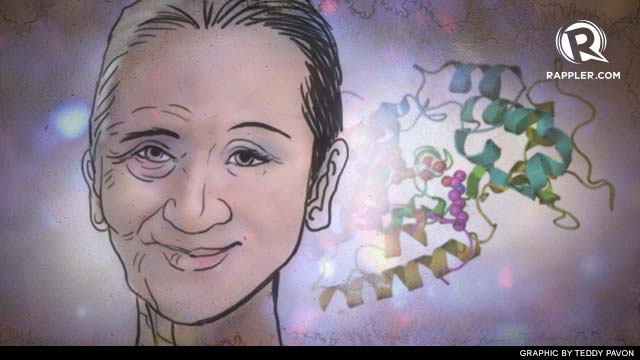SUMMARY
This is AI generated summarization, which may have errors. For context, always refer to the full article.

Time’s arrow is always forward but what would we give to make our own time’s arrow turn back? Philosophy and fiction are masters of exploring both the joy and tragedy of aging and they usually disagree on whether it is more tragic or more joyful.
But always, they concede to its inevitability. But science has a peculiar role. It is the one that probes if our assumptions about life and death indeed have basis in physical realities. And it seems that for aging, the latest finding in science says we may not have to age.
The study was done by scientists from the University of California-Berkeley in collaboration with the Center for Regenerative Medicine of the Harvard Medical School as well as the Harvard Stem Cell Institute. Results from their study revealed that something may be able to reverse the wear and tear of aging. The study was published very recently in Cell Reports.
This is not about being rebooted to being a child or teenager again but in reversing the wear and tear of your body. This wear and tear may range from the wrinkling of skin to serious diseases like heart disease. When we age, our bodies gradually lose the power to regenerate itself and so we become vulnerable and succumb to ills. Why?
Sirtuin
Scientists have known for a while now that this regeneration rests, in a major way, in a protein (formed by the action of a set of genes) that we naturally have but gradually lose as we age and it is called sirtuin. As early as 2008, science writer Nicolas Wade of the New York Times reported on a drug called Sirtris which was bought by GSK, a giant drug company. It capitalizes precisely on the regenerating powers of sirtuin. Up to now, we have yet to see this drug approved for general consumption. Scientists agree only on the point that we need to know more.

Sirtuin in mammals come in 7 forms, SIRT 1 to 7. The recent study I mentioned zeroed in on SIRT3 which is found in the mitochondria, that part of your cell that is like your power generator. This process, while it enables us to function, stresses out our bodies – a stress that scientists call “oxidative stress,” and over time, this takes a toll on our bodies.
When scientists injected SIRT3 in stem cells in blood, it boosted the ability of the blood cells to repair and renew themselves and the entire blood system. SIRT3 was also found to regulate the metabolism in the mitochondria which translates to our body’s overall ability to efficiently use energy. Past studies have pointed to SIRT3 playing a role in aging but this is the first time that it was demonstrated that it can reverse it.
Mice test
The catch though is that they did it with mice. That is almost always the case with tests because it is unethical and illegal to do very bold tests like this one on humans. While the thought of ageless mice is not really appealing, the prospect of still being able to do the things one was able to do many years ago is something that we humans dream and write songs and poetry about.
I wonder if SIRT3 injections will work on the aging caused by loneliness. Last year in March 2012, in the journal Psychology and Aging, scientists found that the hearts of young people who considered themselves lonely resembled the hearts of old but unlonely people. What kind of protein could nudge brain cells to revert from tendencies such as loneliness and make our bodies degenerate?
And while we are it, how much of our physical and emotional lives are we going to surrender to time and how much of it to pharmacological intervention? The temptation of having a healthy body as long as I am living is undoubtedly tempting. However, the notion of just dropping dead one day without warning as shown by studies on the mice who took these drugs in similar tests before this one, is at the very least, quite anti-climactic. It would seem like I am a machine that just goes kaput without warning. No priming, no emotional scaling, none of the drama that aches, pains and illnesses play in the process of aging.
But I may think this way now because we humans know only one way to die a “natural death,” which is with aches and pains and the eventual forgetfulness as we age.
Maybe the human drama of aging would take another form. When that happens, we may have to revise the way we express the drama of our lives in poetry and song, and the phrase “sudden death” would no longer startle us. – Rappler.com
Maria Isabel Garcia is a science writer. She has written two books, “Science Solitaire” and “Twenty One Grams of Spirit and Seven Ounces of Desire.” Her column appears every Friday and you can reach her at sciencesolitaire@gmail.com.
Add a comment
How does this make you feel?
There are no comments yet. Add your comment to start the conversation.